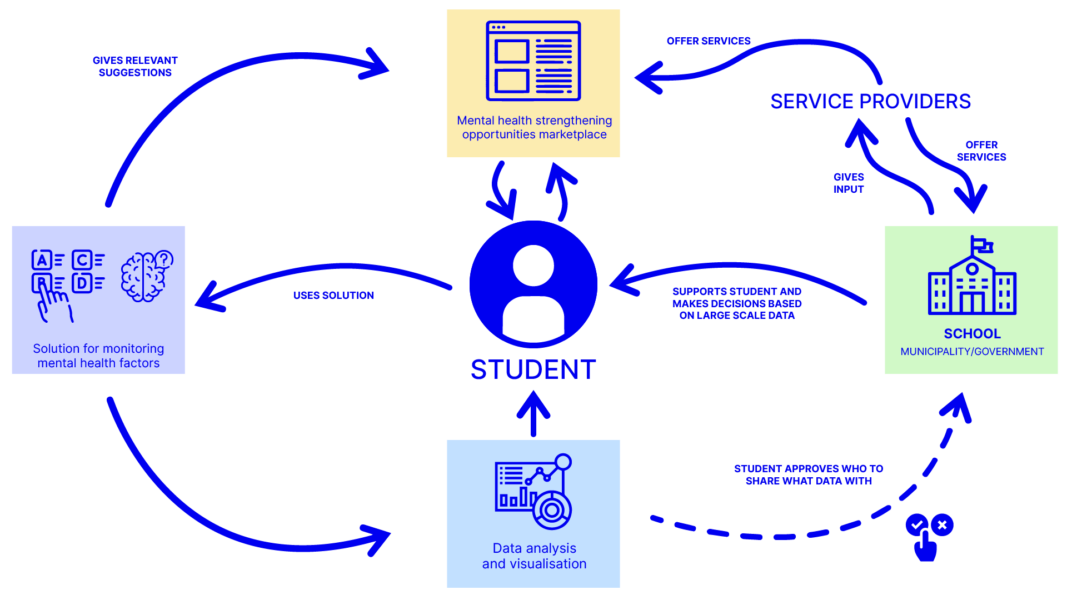Why?
At school, young people can develop the skills of self-support and self-help that are the cornerstone of mental health. Unfortunately, currently there are not enough qualified psychologists and support specialists in the Estonian education system, hindering the provision of necessary support to students. Systematic improvement of the situation must begin with promotion and prevention.
What?
Clanbeat’s goal within the Accelerate Estonia project is to prepare for a qualitative leap in promoting mental health and preventing mental health issues in young people.
To this end, we will create and test a new way to map the mental health status of students in real time. The purpose of such mapping is to raise students’ (self-)awareness so that they can monitor their mental health and empower them to take age-appropriate responsibility for their mental health. At the same time, it gives schools, local governments and the state the opportunity to collect data flexibly and implement needs-based promotion and prevention activities.
In addition, we will create and test how technology can provide access to mental health resources for all students. During the project, we will carry out preparatory activities for the creation of a so-called marketplace, the aim of which is to provide opportunities for the development of knowledge and skills in the field of mental health and support for the use of self-help techniques if necessary. With a technology-based solution, students can reach out directly to trusted service providers, depending less on the initiative or abilities of the school, municipality or parents. On the other hand, the marketplace will help service providers reach students more easily.

How?
To create the concept for collecting data and mapping youth mental health status, we are cooperating with experts in the field from the National Institute for Health Development, Tallinn University, the University of Tartu and the Ministry of Social Affairs. The expert group includes researchers, practitioners and lecturers in the field of psychology, educational psychology and social studies.
We will work with a variety of mental health service providers to understand how and on what terms it would be most effective to support students through a marketplace solution. The service providers may involve various NGOs, public organisations and mental health professionals.
Throughout the process, we will involve students and other related stakeholders so that the concepts we create would meet their needs and opportunities.
What does this mean for Estonia?
Mental health disorders have a negative impact on young people’s development, learning outcomes and entry into the labor market, which in turn means higher costs of social and health services for the state. The direct and indirect costs of mental health in Estonia are estimated at nearly 600 million euros.
We support the systematic and data-based promotion of youth mental health at the level of students, schools, local governments and the state, aiming to prevent major problems in the following stages of the life cycle. This in turn helps to reduce the direct and indirect costs of mental health to the state and contributes to the goals set in Estonian development documents, including the Estonia 2035 development strategy in which one of the five goals is to ensure that people are health-conscious, behaving in a way that protects the lives of themselves and others by taking care of both their mental and physical health. This goes in line with the green book of mental health, envisioning that students will have knowledge on how to maintain positive mental health and skills to apply mental health first aid when needed.




